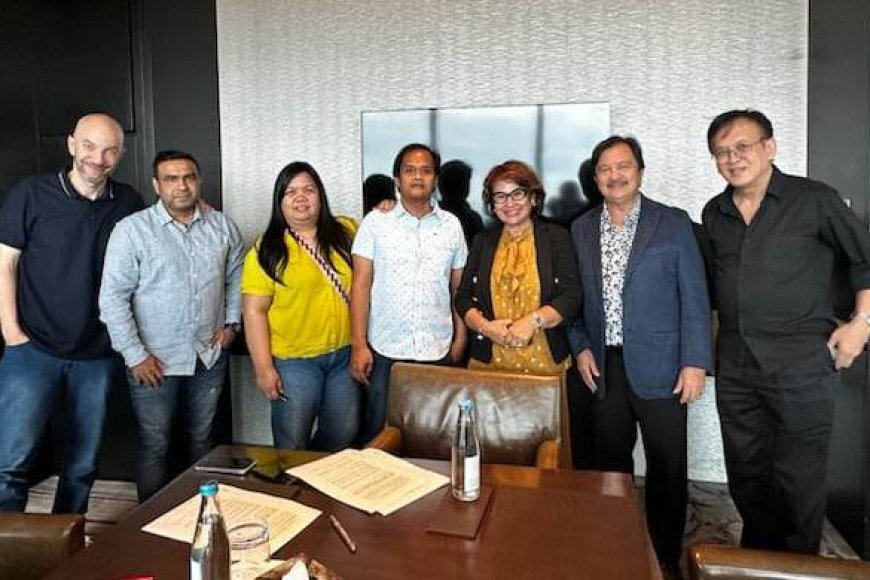Restoring nobility in banking
By Bjorn Biel M. Beltran, Special Features and Content Assistant Editor Growing up, Iñigo L. Regalado III—the newly-inducted president of the Bankers Institute of the Philippines (BAIPHIL) and director of the Capacity Development Department at Bangko Sentral ng Pilipinas (BSP)—witnessed firsthand what it really means to be a banker. His father, who worked at the […]

By Bjorn Biel M. Beltran, Special Features and Content Assistant Editor
Growing up, Iñigo L. Regalado III—the newly-inducted president of the Bankers Institute of the Philippines (BAIPHIL) and director of the Capacity Development Department at Bangko Sentral ng Pilipinas (BSP)—witnessed firsthand what it really means to be a banker.
His father, who worked at the central bank before him, never openly shared the problems he faced at work; but his commitment to his role was always evident in his body language, and how the problems of the banking industry at large seemed to weigh on his shoulders.
Banking, as Mr. Regalado understood it, was a public trust. “It’s not your money you’re handling, but the public’s,” he said in an interview.
This was essentially the core of BAIPHIL’s theme for this year: “Responsible Banking in the Digital Age.” In an era of ever-increasing digitalization, Mr. Regalado sees an opportunity to remind the banking community of its deeper purpose.
“I don’t want a fancy theme,” he said. “I want something that everyone can relate to and can associate with, and that’s responsible banking.”
The prevalence of digital wallets, online commerce, and cashless transactions today have created an unprecedented environment for banks to push for financial inclusion initiatives, giving unbanked and underbanked communities access to financial services and opportunities.
In fact, as of 2023, digital payments have become the preferred method of Filipinos when making monthly retail payments according to the 2023 BSP Report on E-Payments Measurement. Digital payment transactions accounted for 52.8% of all total monthly retail payments in the Philippines during the year, up from 2022’s recorded 42.1%.
However, this digital environment has also become fertile ground for malicious and fraudulent activity putting Filipino consumers at risk. According to a study by TransUnion, 8.3% of all digital transactions by Filipino consumers last year were suspected to be fraudulent, 66% higher than the global digital fraud rate of 5%.
For transactions where the consumer or fraudster was located in the Philippines, TransUnion found that financial services were a close second behind retail as the industry with the highest suspected digital fraud rate.
Hence, for Mr. Regalado, responsible banking today is an imperative framework for how the industry should operate. He identifies three pillars that underpin this concept. The first pillar focuses on regulators, such as the BSP, which plays a critical role in crafting policies that safeguard consumers and ensure accountability.
“With technology and digital banking, what are the rules that should go with digital banking?” Mr. Regalado said. “That’s the regulator’s side—policing banks to make sure that everything is above board.”
The second pillar involves the banking industry itself. As digital tools become essential to modern banking, institutions must ensure that their employees have the skills to implement these tools responsibly. “The challenge is you’re not just training them for regular banking, but digital banking as well,” he pointed out.
The final pillar is the public, who must learn to navigate the digital banking environment responsibly. “You also have to be responsible as an end user of the system of banks,” Mr. Regalado said. “As an end user, you should know the challenges or the common traps in a digital environment.”
 Unlike regulators, BAIPHIL cannot impose policies or enforce rules. As a non-stock, non-profit corporation promoting the mantra of banking excellence, the organization is what Mr. Regalado refers to as “a small fish in a very big pond,” and tackling an issue as vast as responsible banking is too much of a challenge to attempt alone.
Unlike regulators, BAIPHIL cannot impose policies or enforce rules. As a non-stock, non-profit corporation promoting the mantra of banking excellence, the organization is what Mr. Regalado refers to as “a small fish in a very big pond,” and tackling an issue as vast as responsible banking is too much of a challenge to attempt alone.
So, instead, BAIPHIL seeks to act as the bridge between various stakeholders in the banking industry—the regulators, the banks themselves, and the public.
“We try as much as possible to be an avenue for talks, for dialogue,” Mr. Regalado said, “so that we can help each other, talk to each other, collaborate with each other, and make sure that our message gets across.”
Through collaborations with institutions like the BSP, BAIPHIL facilitates discussions and initiatives that promote ethical banking practices, such as the upcoming Banker’s Professional Program, which emphasizes the moral responsibility of banking professionals. “We want to communicate that banking work is noble as well,” he said.
Mr. Regalado recalled the commitment his father had for his work, a quiet resolve that left a lasting impression on him and his siblings, shaping their belief that banking is not just a career—it’s a noble calling rooted in trust, integrity, and public service.
“That’s where I learned that your values should be resolute,” Mr. Regalado said. “The moment your values are challenged, and you don’t pass the litmus test, that’s when the problems will start to become systemic.”
However, he admitted that success is not easy to measure when you use metrics like commitment to values. Metrics like event attendance, the number of partnerships formed, or the total investments committed are useful, but they don’t fully capture the impact of initiatives that aim to instill values and ethics into the banking industry.
“All I know is it cannot end with my term. It has to have a life of its own,” Mr. Regalado said.
A Greek proverb states that a society grows great when old men plant trees whose shade they know they shall never sit in. Mr. Regalado sees BAIPHIL as that planter of seeds, nurturing initiatives that will grow into lasting contributions to the banking industry.
“Planting seeds, nurturing them to become good trees, so that people can benefit. At the end of the day, that’s when I can say that BAIPHIL fought a good fight. We finished the race, and we kept the faith to our mantra of banking excellence.”
This article is in the special edition of BusinessWorld In-Depth digital magazine on BAIPHIL Induction of Officers. Get the full issue for FREE via BWorldX. Visit www.bworld-x.com.























